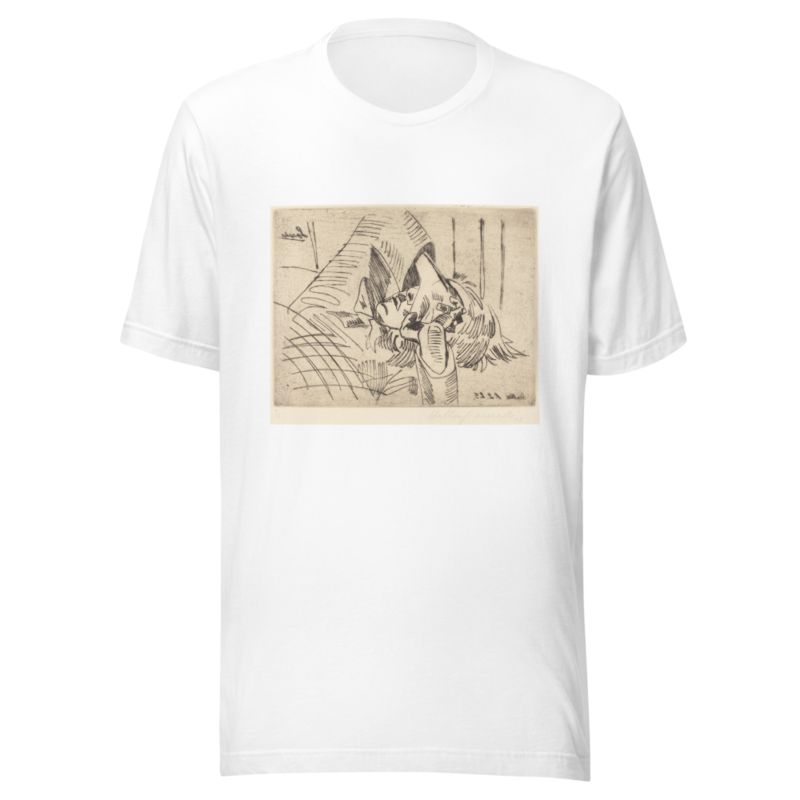Description
Sonia by Walter Gramatté printed on a T-Shirt
About the T-Shirt
Regular fit
Standard length, the fabric easily gives into movement
Casual wear
A classic, everyday option loved by our customers
Side-seamed
Constructed by sewing two parts together, creating a fitted look
The Unisex Staple T-Shirt feels soft and light with just the right amount of stretch. It’s comfortable and flattering for all. We can’t compliment this shirt enough–it’s one of our crowd favorites, and it’s sure to be your next favorite too!
- Solid colors are 100% Airlume combed and ring-spun cotton
- Ash color is 99% combed and ring-spun cotton, 1% polyester
- Heather colors are 52% combed and ring-spun cotton, 48% polyester
- Athletic and Black Heather are 90% combed and ring-spun cotton, 10% polyester
- Heather Prism colors are 99% combed and ring-spun cotton, 1% polyester
- Fabric weight: 4.2 oz./yd.² (142 g/m²)
- Pre-shrunk fabric
- 30 singles
- Side-seamed construction
- Tear-away label
- Shoulder-to-shoulder taping
- Blank product sourced from Nicaragua, Mexico, Honduras, or the US
Walter Gramatté (1897 – 1929)
Walter Gramatté was a German expressionist painter who specialized in magic realism. He worked in Berlin, Hamburg, Hiddensee and Barcelona. He often painted with a mystical view of nature. Many of his works were inspired by his experiences in the First World War and his illness.
His father was a baker. He enlisted at the beginning of the war, but his poor health often exempted him from combat duty. His studies were mostly at the Kunstgewerbeschule (Arts and Crafts school) in Berlin. He opened his own studio in 1917.
In 1920, he married the Russian pianist, Sonia Fridman and became associated with Die Brücke, a group of Expressionist artists.
Despite his weak health, he traveled extensively, visiting France, Italy and Spain. He spent a great deal of time at the spa in Hiddensee and was hospitalized on several occasions, dying on 9 February 1929 of intestinal tuberculosis. His grave monument was designed by his friend, Karl Schmidt-Rottluff.
His works were classified as “Degenerate art” by the Nazi government in 1933 and were not exhibited again until after the war. He was the inspiration for the painter “Catell”, a character in the novel Die Stadt hinter dem Strom by Hermann Kasack.






Reviews
There are no reviews yet.